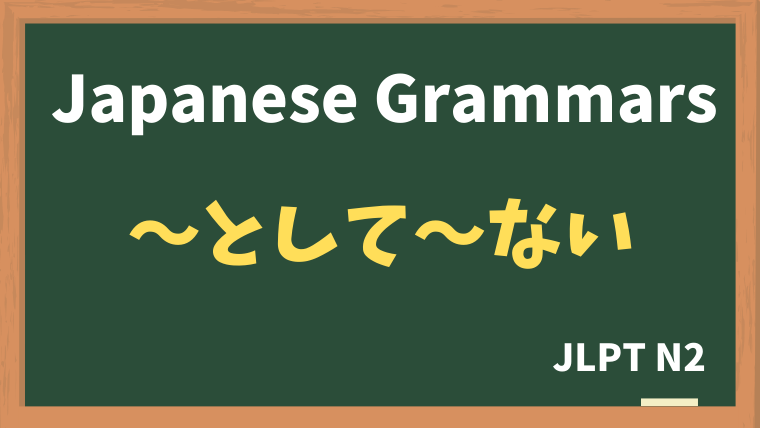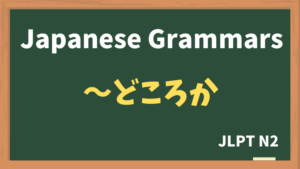
Explanation:~として ~ない
fa-check-circleMeaning
"全く〜ない / 全然〜ない"
Used to emphasize that something has not happened or something does not exist, often with a strong negation. It can be translated as "not even one" or "none at all" in English, conveying that something is entirely absent or hasn't occurred at all.
fa-check-circleForm
1 + counter + として ・・・ V(nai form)
fa-check-circlePoints
- Strong Negation: This structure emphasizes the complete lack or absence of something.
- Emphatic Tone: It adds an emphatic tone to the sentence, stressing the negation.
fa-check-circleJLPT Level
N2
Sample sentenes
彼は一日として学校を休んだことがない。
He has never missed a single day of school.
このお店の商品は高いものばかりで、一つとして私が買えそうなものはない。
Everything in this store is expensive; there isn’t a single item I can afford.
このチームは一度として、試合で買ったことがない。
This team has never won a single match.
部長の意見に、だれ一人として反対する者はいなかった。
Not a single person opposed the manager’s opinion.
カレンさんは一度として宿題を忘れたことがない。
Karen has never forgotten her homework even once.
次の飲み会は誰一人として欠席は許されないようだ。
It seems that no one is allowed to be absent from the next drinking party.
Vocabulary
| Japanese |
English | |
| 意見 | いけん | opinion |






